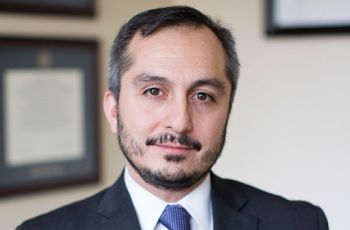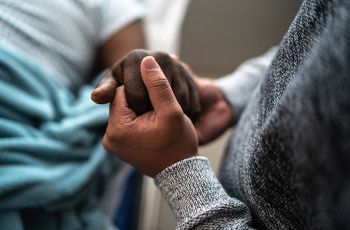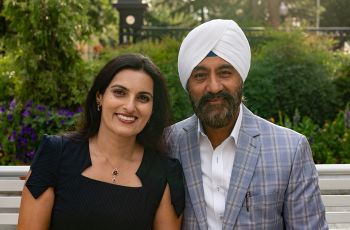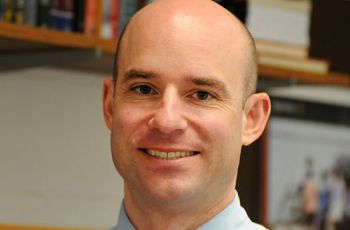News Archive
At a moment when the global COVID-19 pandemic is finally loosening its grip on the public consciousness as an object of existential dread, a new fear has swept in to supplant it: nuclear annihilation. Assistant Professor Amir Afkhami, MD, from the department of Psychiatry and Behavioral Sciences…
Washington, D.C., leaders and representatives from Universal Health Services, the George Washington (GW) School of Medicine and Health Sciences (SMHS), and GW Medical Faculty Associates (GW MFA), cut the ribbon on a new Cedar Hill Urgent Care Center, part of the broader $403 million project that…
The George Washington University Institute for Spirituality (GWish) recently announced the recipients of five $100,000 grants in support of demonstration projects to develop and implement interprofessional spiritual care models that can be tested in multiple health settings.
Every day in the nearly 20 years she practiced medicine at George Washington University, Seema P. Kakar, saw the impact of unhealthy eating in her patients living with diabetes, high blood pressure, kidney disease and other chronic diseases.
Second-Year Medical Student Cecilia Velarde De La Via discusses the health care experience for members of the Hispanic community and the significance of Hispanic Heritage Month to her.
Two D.C.-area facilities are recruiting volunteers to test the efficacy of different doses of a monkeypox vaccine with the hope that they can stretch available supplies.
The National Institutes of Health, in Bethesda, Maryland, and George Washington University, in D.C., are among eight…
GW Professor Dr. David Diemert talks about the MonkeyPox Vaccine trial at GW.
The opinion piece written by Leigh A. Frame discusses passing new legislation requiring providers to incorporate nutritional education into healthcare.
The Department of Dermatology at the George Washington University School of Medicine and Health Sciences received two awards from dermatology company Galderma to establish a research fund and a medical student research fellowship.
The George Washington University (GW) Primary Care program launched a lifestyle medicine track, training residents to help patients make key behavioral changes that can reverse the effects of chronic disease.






